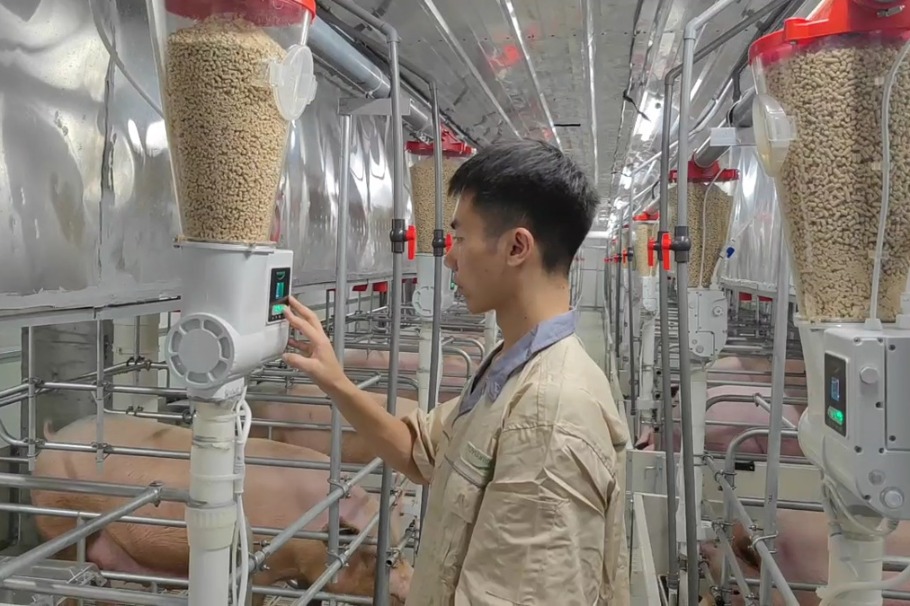Coronavirus Battle in China: Process and Prospect

4. How can the international community cope with the epidemic for common human security?
In our globalized world, the 2019-nCov epidemic will inevitably have global impacts. Committed to promoting the building of a community of shared future for mankind, China has been striving to undertake its due international responsibilities and obligations in countering the epidemic.
Above all, with utmost openness and promptness, the Chinese government is working closely with the World Health Organization (WHO) on every step of the epidemic, exemplified by President Xi’s meeting with WHO Director-General Tedros Adhanom Ghebreyesuson on January 28. After the Director-General declared the 2019-nCov epidemic as a “public health emergency of international concern (PHEIC),” China’s mainstream media like People’s Daily and Xinhua News Agency reported the news instantly, indicating that the Chinese government has nothing to hide from the public and that the Chinese people are fully confident in conquering the epidemic.
Next, the Chinese government has given full understanding and assistance to other governments’ actions to prevent the epidemic, such as some countries’ evacuation missions from Wuhan and their decisions to halt airlines to China. All such requests will continue to be met with utmost efficiency and generosity from the Chinese government.
Furthermore, the Chinese government has remained open and grateful to all kinds of assistance from other countries in countering the epidemic. At the same time, China is considering promoting such cooperation in future epidemics of the world.
Finally, both the Chinese government and public opinion are quite concerned about the impact of the epidemic on the world. For example, the government has been trying to minimize the spread of the epidemic to other countries by increasing control of overseas travels by the population in worst-hit regions and calling on the public to take social responsibilities in preventing the dissemination of the virus.
With regard to the global concern over the 2019-nCov epidemic, we suggest the
following joint actions by the international community for our common security:
First, optimize the existing epidemic information disclosure mechanisms. China’s daily “epidemic bulletin” broadcast in multiple languages plays the key role, in particular the languages of neighboring countries, such as Russian, Japanese, Korean and English, so that related information and data can be accessible to the public before fake news and rumors begin to spread. Successful actions of the Chinese government in preventing the spread of the epidemic can be introduced in detail in the Bulletin, too. The real-time Bulletin in multiple languages should be put on the websites of the Ministry of Foreign Affairs and Chinese embassies and consulates abroad. Meanwhile, we strongly hope that international media and thinktanks maintain an objective, comprehensive and humane stance in conducting reports or analyses of the epidemic and avoid hyping unconfirmed information or even rumors.
Second, strengthen international exchange of experience in epidemic control. It is important for China to translate the latest Guidelines for Preventing the 2019-nCov into different languages and pass it over to neighboring countries swiftly and in multiple forms (such as by social media). It will not only help those countries counter the epidemic with Chinese experience, but also contribute to China’s image as a “kind neighbor” and “responsible great power.” We call for more support from the United States, EU and other developed countries in medical equipment and supplies, as well as their best practices in epidemic control.
Third, oppose discrimination against epidemic-struck regions and people. The
epidemic must not become a new fence between countries, but it should be turned into a new bridge across nations. At present, China’s Ministry of Foreign Affairs as well as embassies and consulates abroad are in close contact with the governments and health and epidemic prevention agencies of other countries, updating them with the latest progress in countering the epidemic. Chinese communities abroad also keep a close eye on the health conditions of Chinese living in their neighborhood; and they are ready to help local epidemic prevention agencies, if necessary, to provide certifications for healthy Chinese or those proven healthy through self-quarantine, so as to prevent ugly
anti-Chinese events due in large part to incomplete information. We hereby advocate that the public in all countries remain calm about the epidemic and avoid discrimination against Chinese or any infected persons. For we, as human beings, are one family and no ethnic group can stand immune to our common challenge.
- Beijing-Tianjin-Hebei 2025 celebrations shine at Zhengding county
- Multiple legal, policy measures take effect in China
- SCIA elevates global reach with launch of new English website
- Legacy of Tea Horse Road lives on in Yunnan village
- Brewing rich legacy of tea culture
- China's unfolding story of innovation, unity and influence







































